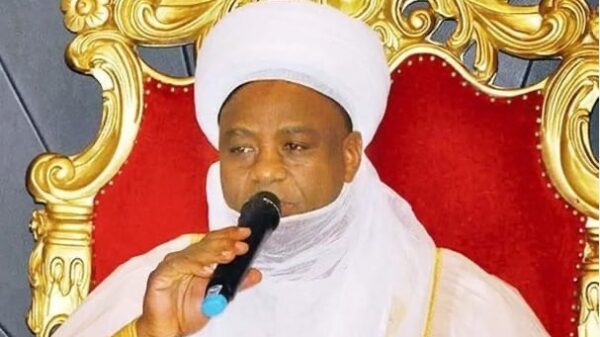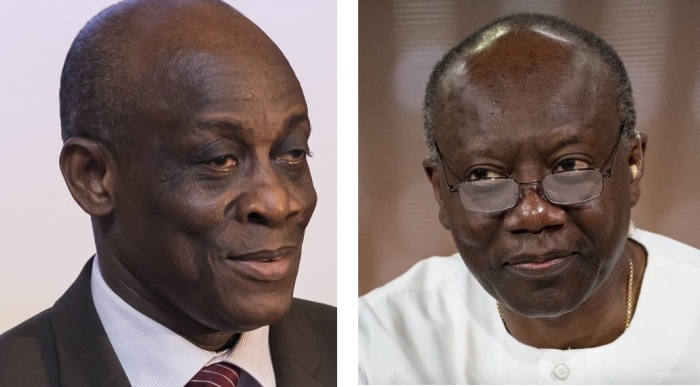Adnan Adams Mohammed
Public concerns heightened on how Ghana government could prudently manage its high budget and fiscal deficit.
Ghana’s budget deficit has been consistently high, ending 2022 with a gap of about 9.0% of Gross Domestic Product.
To this, a former Finance Minister has advised the government to tighten the rules of the Public Financial Management Act to cut the country’s budget deficit significantly. The finance expert wants the government to adopt a comprehensive approach to managing the country’s finances to reduce the high fiscal deficit.
“Enforcing the Public Financial Management Law is key to addressing all these financial infractions”, Seth Terkper posited in an interview last week.
Although, the government is taking some extra measures to limit the amount of debt that can be incurred by any administration, it has proposed a debt target as part of fiscal reforms under the IMF programme.
But Mr. Terkper believes that enforcement of the PMF Law will be the game changer.
“As we continue, I would like to know from government documents if it is a memorandum of economic or financial policy. I’m saying that we do have the provisions; they’re already in the Public Financial Management Act which was passed in 2016 (Act 921) and the budget responsibility Act which you mentioned is an extract from the PFMA”.
“So there’s the need for tightening the rules”, he added.
He further stated the Public Financial Management Law is to regulate the financial management of the public sector by vigorously ensuring that all rules and regulations are adhered to.
“The debt is from borrowing and the borrowing is from your deficit and the deficit is from revenue minus expenditure and this is the purpose of the Public Financial Management Act; to cover this in one loop which you know amended the financial administration act.
Already, as part of measures to meet the dictates of the International Monetary Fund vis-a-vis the recently-approved US$3 billion bailout, government is expected to prioritize fiscal adjustments to ensure it meets the performance criteria for the disbursement of the other loan tranches.
In this regard, President Nana Akufo-Addo has admitted that Ghana’s fiscal deficit is “way above” the five per cent ceiling set by the fiscal responsibility law, indicating that there was a need to bring it down, as he pledges his government’s commitment to cutting expenditure.
The Fund has already indicated that, Ghana government will be under pressure to cut down its expenditure following the approval of the country’s US$3 billion deal.
“Rationalisation of our expenditure is something that we have given the assurance [about],” President Akufo-Addo said while speaking at the Qatar-Africa Economic Forum in Doha. “Domestic revenue mobilisation is absolutely critical for us, and, already, we are seeing signs.”
Also, he said: “We have a fiscal responsibility law in Ghana that has pegged our fiscal deficit at five per cent but, already, we are way above that,” noting, “and the sooner we can bring that to more acceptable levels, the better for us.”
In an interview last week, the IMF Representative in Ghana, Dr. Leandro Medina posited that; “On the fiscals there is quite a sizeable adjustment in the 2023 budget and what we expect in the duration of the program, on the structural transformation, it has to do with the reforms and measures that improve the business climate and the growth of private sector”,
“So, there are a lot of reforms within the context of the program that look at what you can do within these three years to ensure that there is a strong foundation in growth and that is the effect of that structural transformation”, he added.
The Fund has also justified the adoption of three mobilization measures as well as the increase in utility costs as Ghana attempts to fix its balance of payment problems.
Despite criticisms, the Excise Duty, Growth and Sustainability, and Income Tax Amendment laws aim to generate GHS4 billion for the country each year have been passed.
These, along with the expected tariff increases in June, are deemed crucial components of the country’s US$ 3 billion, three-year Extended Credit Facility with the IMF.
Dr. Leandro Medina, argued in favour of adjustments in the face other tough economic conditions.
“The revenue measures that have been passed between December and April are part of the prior actions. It’s very important to mobilize revenue. Revenue to GDP in Ghana is very low as compared to other countries. Ghana is making a huge effort to increase revenue, and this will be done mainly by increasing the tax base. What is important to say is that this is a large and front load fiscal consolidation”, he added.




























